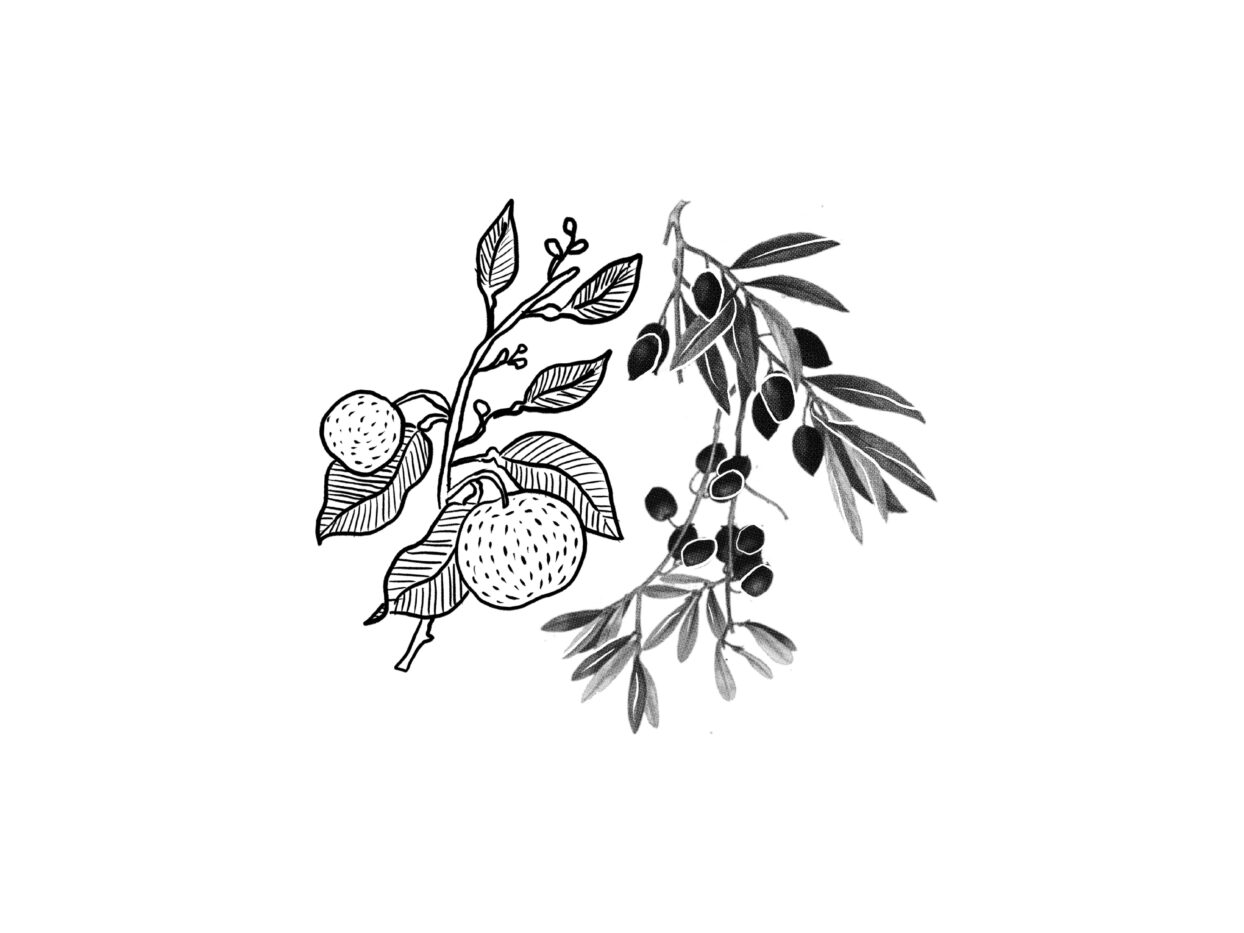
Image by Ivy Sanders Schneider

Image by Ivy Sanders Schneider
Since Elias Khoury, the celebrated Lebanese novelist and critic, died in September, I have been thinking about a passage from his 1998 epic of Palestinian displacement, Gate of the Sun. “You should have eaten the oranges,” Khoury’s narrator is told by a former freedom fighter. “The homeland is something we have to consume,” the freedom fighter continues. “We have to devour the oranges of Palestine, and we have to devour Palestine and Galilee.” In a similar passage in The Alexandria Quartet, the British novelist and cosmopolitan civil servant Lawrence Durrell describes how, upon impulsively devouring a tin of olives, the narrator “began to eat Italy, its dark scorched flesh, hand-modeled spring soil, dedicated vines.” I love both writers, the revolutionary and reactionary, working in Arabic and English, respectively, because of passages like these, because they realize that to eat is to attempt to understand.
A novel belongs to the writer first, but the writer is their language. Surely the rhythms and rule-sets of our respective tongues change our experience of music, the sublime, the extralinguistic — precisely that which in the experience of the world escapes translation. A problem, in short. The extreme version of this argument was expounded by Derrida, who expressed “a jealous and admiring love” of translators but also a mock-serious desire: “I do not want a translation to be possible.” Amid today’s celebration of “literature in translation” and, before that, “world literature,” we might forget that autographic specificity can be undermined by alteration, and that translation, regardless of its fidelity to the sentiment or syntax of the source material, is a mask. Novels are novels because of their specificity and distinctiveness; those are the haunches on which they travel. “Nevertheless there is translation,” Derrida continued. “We can’t repress this desire for translation. So why, at the same time, translate and not translate?”
Writing belongs to the political and cultural world from which it is born as much as to its language; in translation, both are lost. But, armed with history and canon, some Anglophone critics perhaps feel pressure to apply a few too many of their faculties to the texts at hand. “I have always been considered a disappointment in the New York offices of New Directions and Archipelago,” wrote Christian Lorentzen this summer, regarding his reluctance to write about works in translation. “Well, for one thing there are such things as traditions and contexts and languages, and I don’t know them whereas others are actual experts in them, whereas I do speak and read English and have lived in America and England.” He is right, in a way. If we had access to Borges’s infinite library and had infinite time, we would read everything and overdose — but we don’t, so we make choices.
The expertise Lorentzen is referring to should not be a requirement, and to think of it as such can have a deadening effect. I needn’t speak Russian, or know anything about Soviet collectivization, to admire Platonov, though that might deepen my appreciation. Each writer is a cosmos, and their texts are permeated by their body, sensations, intuitions, political rancor, and schizophrenias. Therefore it is only reasonable to read for the quality of a writer’s imagination, the quality of their attempt to negotiate with language to explain themselves. Read Can Xue not because she is Chinese, but because she can tuck seven characters into one, and still her novels don’t bulge. Read Eduardo Galeano not because he is Uruguayan, but because he understood America as a cluster of dissonant images and stitched them into the continent’s fabric. An author’s words have everything we need. I remember Khoury again. “We have to eat every last orange in the world and not be afraid, because the homeland isn’t oranges. The homeland is us.”
Zain Khalid is a novelist and an associate editor at The Drift.